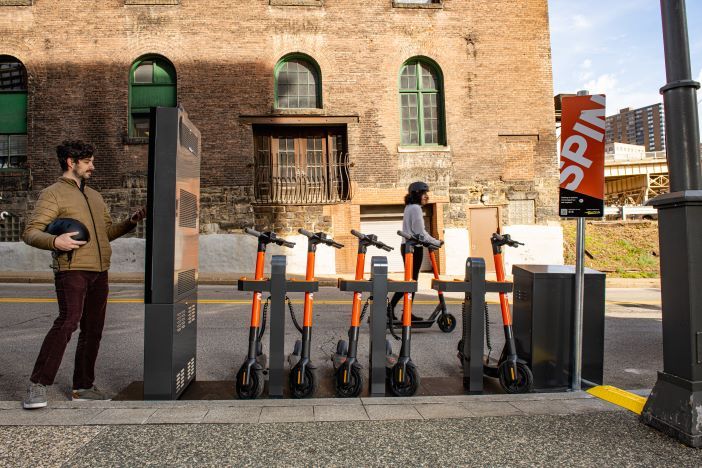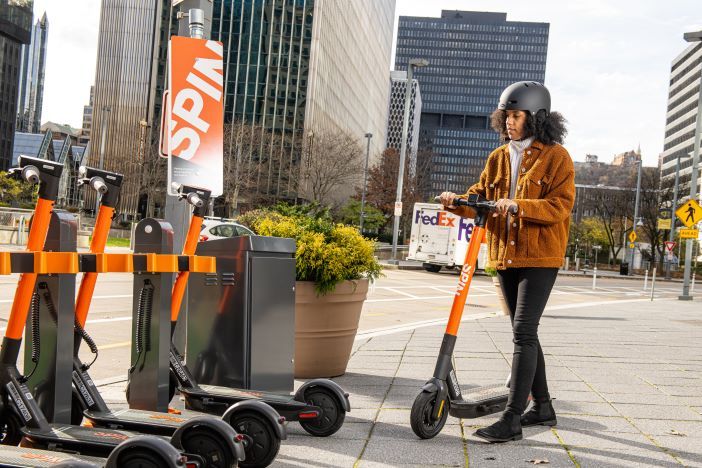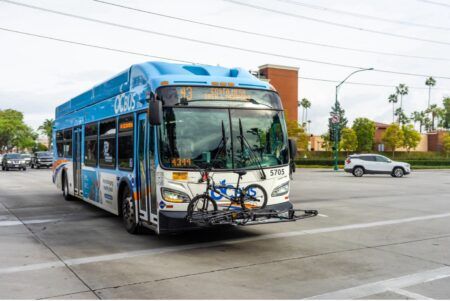The City of Pittsburgh, Carnegie Mellon University (CMU) and micromobility service provider Spin are launching a first-of-its-kind study that will give up to 50 low-income residents in Pittsburgh, Pennsylvania free access to shared mobility and public transit services to look at its effects on participants’ socioeconomic progress.
The year-long research project will study the potential of free transportation to improve people’s economic, health, and social outcomes when financial barriers to transportation are removed, with a goal of improving access to jobs, education, healthcare, social services and recreational activities.
The trial will focus on residents of Pittsburgh’s Manchester and Chateau neighborhoods, with recruiting and ongoing support provided by the Manchester Citizens Corporation. CMU will evaluate the trial. Eligible participants will receive free access to the Move PGH transportation services including public transit, Spin scooters, POGOH bikes, and Zipcar. The pilot is funded by a US$200,000 grant awarded from the Richard King Mellon Foundation, with Spin contributing an additional US$50,000.
“Having access to affordable and reliable transportation is critical in helping families across our city find a pathway to prosperity,” says Pittsburgh Mayor Ed Gainey. “This pilot program will help us more fully understand just how much of an impact transportation has on the lives and wellbeing of people in Pittsburgh.”

One hundred people will take part in the pilot. They will be randomly allocated to two groups: 50 of them will receive free access to Move PGH transportation services, and 50 of them will not, to allow for comparison. Analysis will include survey and travel behaviour data collected from participants and the transportation service providers, along with anonymized details on participants’ income and use of various forms of public assistance from the Allegheny County Department of Human Services. The research is expected to conclude next summer.
“Making mobility more equitable and reliable is central to Spin’s mission and we see great potential for positive impact in the Pittsburgh community, and beyond,” says Philip Reinckens, CEO at Spin. “By piloting a wide variety of free transit and mobility options, cities and service providers like Spin are looking to support data-driven policy making that will ultimately improve people’s lives.”
The Manchester neighborhood was specifically chosen for the program as the median income is this area is 14% below median income in the City of Pittsburgh. The economic opportunity of the Central Business District, where there is a higher number of jobs and services is just out of reach for people living in the Manchester neighborhood because of high transportation pricing and limited transit options. However, with better access to employment, education and various services comes the potential to improve participants’ quality of life and access to opportunities.
“Affordable transportation is a huge issue in Manchester and many of our neighbors, unfortunately, don’t have many opportunities within their own neighborhood and need to go elsewhere,” says LaShawn Burton Faulk, executive director of the Manchester Citizens Corporation. “We are excited to be home to this UBM pilot and see how it might improve the quality of life of our most vulnerable Manchestrians.”





